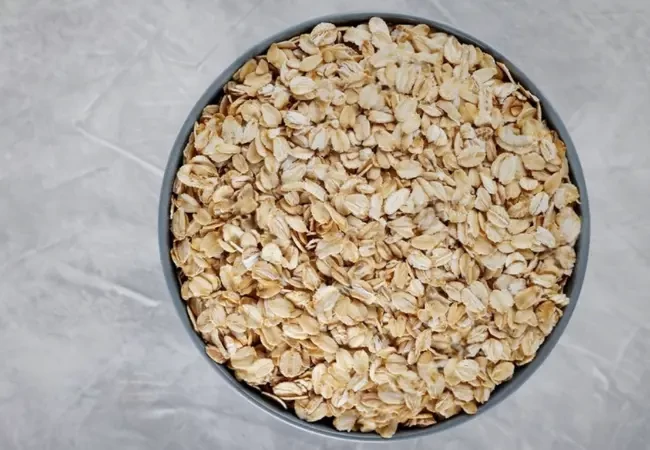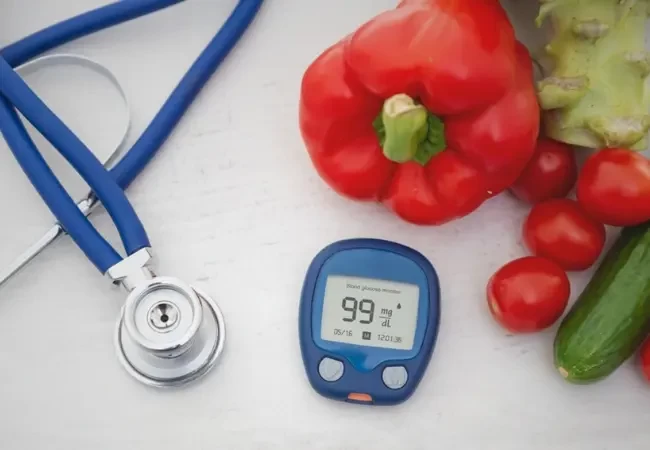Blog
Vaccines
A Shield for Diabetic Health

How Vaccines Help Protect Diabetics From Infections
 Medically reviewed by: Dr. Tom Babu, Consultant Diabetologist & Endocrinologist - Written by Riya Yacob - Updated on 11/6/2025
Medically reviewed by: Dr. Tom Babu, Consultant Diabetologist & Endocrinologist - Written by Riya Yacob - Updated on 11/6/2025According to WHO, India has around 77 million adults living with type 2 diabetes, and around 25 million people are prediabetic. While most people focus on blood sugar control, diet, and exercise, diabetic patients are unaware of the importance of vaccination. For diabetics, getting the right vaccines at the right time is very crucial. When you have diabetes, your immune system may not function as strongly as it should. Due to this, you have a greater risk of infection, and these infections tend to be more serious than they would be if you did not have diabetes. That’s why understanding the vaccination benefits for diabetics is very important for long-term health. In this blog, we will discuss how vaccines can protect diabetics from infections.
Why are diabetics at higher risk?
Even when diabetes is well-controlled, the immune system is at risk and will be weakened. As a result, your body may not be able to fight off viruses and bacteria as effectively as it used to. High blood sugar levels can slow down the healing process and increase the risk of complications from even common illnesses.
Take a flu or pneumonia infection, for example. For most people, it may cause a few days of rest and recovery. But for someone with diabetes, it could mean hospitalisation, lung issues, heart strain, or kidney complications. There are some cases in which it can even lead to death.
If left untreated, diabetes patients are at a higher risk of developing infections that can quickly become serious. Common risks include viral infections like the flu and COVID-19 can lead to severe respiratory complications. Pneumonia is also another major concern, as lung infections can be very dangerous in older diabetic adults. Shingles is also more common in diabetics and can result in long-term nerve pain. Apart from that, there is an increased risk of Hepatitis B due to frequent medical procedures such as blood sugar monitoring. Vaccines for diabetics that help create a defense shield around your health.
Vaccination benefits for diabetics
It is important to remember that vaccines are designed to prepare your body to fight infections in the future. They contain small, safe parts of the virus or bacteria (often inactivated or weakened), which help your immune system recognize and remember the germ. That way, if you are ever exposed to it, your body can fight back quickly and efficiently.
This protective effect is especially important for diabetics whose bodies may not react as strongly to an infection without this preparation.
If you are diabetic and catch an infection like the flu or pneumonia, your blood sugar levels can become harder to manage. This stress on the body can lead to complications such as kidney issues, heart problems, diabetic neuropathy (nerve damage), severe dehydration or diabetic ketoacidosis, as well as longer hospital stays and recovery time.
According to medical experts, these complications are avoidable in many cases to a certain limit if proper vaccinations are taken at the right time.
- Vaccines for diabetics
The following are the most important vaccines that every diabetic patient should be aware of: - Influenza (Flu) Vaccine
Flu can lead to severe respiratory illness, mainly in diabetic and elderly patients. The Influenza (Flu) vaccine should be taken every year, before flu season begins. - Pneumococcal Vaccine
As you might already know, pneumonia can worsen existing diabetes-related issues, especially affecting the heart and kidneys. Two types of Pneumococcal vaccines are PCV13 (Pneumococcal Conjugate Vaccine) and PPSV23 (Polysaccharide Vaccine). You need to take PCV13 first, followed by PPSV23 a year later, or as advised by your doctor. - Hepatitis B Vaccine
As there is higher exposure risk through glucose monitoring equipment or other medical tools, Hepatitis B vaccine should be considered. This needs to usually given in a series of 2 or 3 doses. - Shingles Vaccine
Shingles vaccine protects against a painful condition more likely to affect people with weakened immune systems. It is recommended for adults over the age of 50. - Tdap Vaccine (Tetanus, Diphtheria, and Pertussis)
Tdap vaccine prevents serious bacterial infections. This vaccine should be given once, with booster shots every 10 years.
Always remember that vaccines act as a barrier. They don't reduce the chance of catching infections and will limit the severity if you do fall sick. That can mean the difference between a few days of rest and a hospital emergency.
Diabetes Care from Silverline Hospital
Vaccination is just as important as proper diet, exercise, and medication. As a trusted hospital in Kerala for diabetes care, Silverline Hospital has a dedicated team of diabetologists. Apart from exceptional medical care, we offer counseling, personalized diabetic care plans, safe administration of all recommended vaccines, as well as follow-up to ensure protection is complete.

More Blogs
-

Oats Are Also Carbohydrates: Here's Why Protein-Based Foods Are the Better Choice
Think oats are healthy carbs? Discover why protein-based foods are a smarter choice for sustained energy and balanced nutrition.
-

Vaccinations for Diabetics: Flu, Pneumococcal, Tdap & More Explained by Experts
Stay protected with the right vaccines. In this expert-led guide, learn why flu, pneumococcal, Tdap, and other vaccines are essential for people with diabetes.
-

Struggling with Erection or Early Ejaculation? Here's How to Get Help
Struggling with erectile dysfunction or premature ejaculation? Learn common causes, treatments, and how to seek professional help with confidence.
-

When Should Diabetics Eat? Expert Tips on Meal Timing and Blood Sugar Control
Learn how diabetics can optimize meal timing to better control blood sugar. Expert tips for healthier, more balanced living.


 Home
Home  Booking
Booking
 Chat Now
Chat Now  Call Us
Call Us